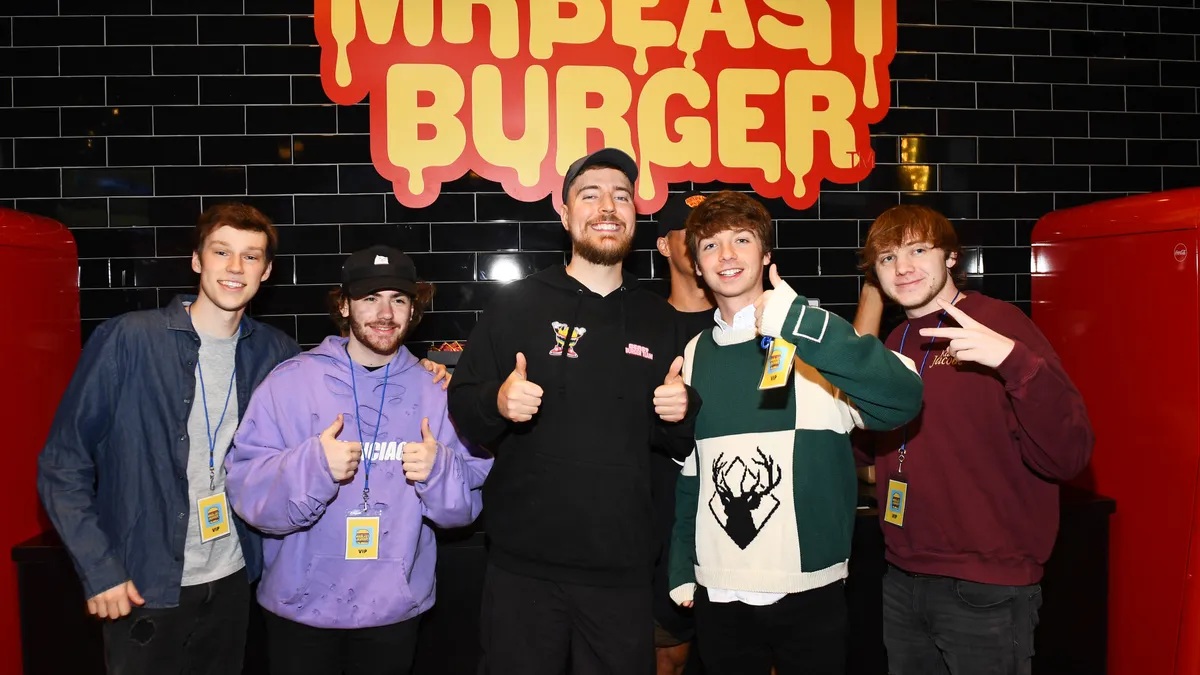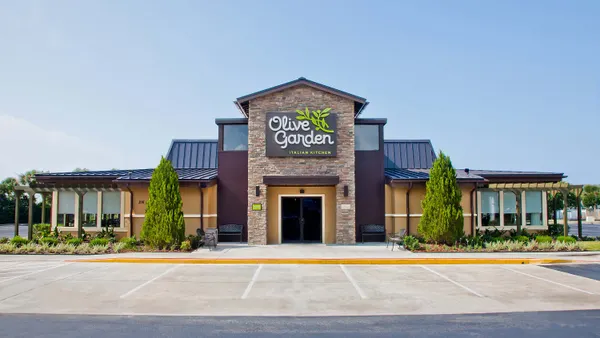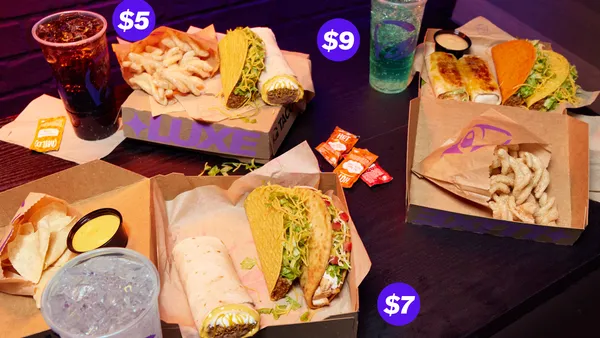Dive Brief:
- Virtual Dining Concepts is suing James Donaldson, a YouTube entertainer that goes by the name MrBeast, according to a complaint filed Monday in the Supreme Court of New York, County of New York. The complaint seeks compensation for damages “in the nine-figure range.”
- VDC alleges Donaldson breached his contract, sought greater control of the MrBeast Burger — a concept he developed in partnership with VDC — then disparaged the brand to the general public.
- On July 31, Donaldson sued VDC in federal court after stating on social media that VDC would not let him shut down the brand in response to negative customer reviews.
Dive Insight:
MrBeast Burger was one of VDC’s flagship brands before tensions with Donaldson began, but a counter suit may not be enough to regain control of the narrative around the social media megastar’s concept. Donaldson’s fame and millions of followers carry powerful influence — initially a boon for the platform, and now a liability for the brand’s future.
“This case is about a social media celebrity who believes his fame means that his word does not matter, that the facts do not matter, and that he can renege and breach his contractual obligations without consequence,” VDC wrote in its complaint.
Donaldson declined to comment through a representative.
VDC alleges that Donaldson and his business, Beast Investments, tried to negotiate for greater control of the virtual brand several times, beginning in November 2022. VDC declined to change the terms of their partnership. According to the complaint, in March, Donaldson alleged through his attorneys that VDC had breached the agreement.
In June, Donaldson publicly express his desire to shut down the brand, following some negative customer reviews. In the complaint, VDC dismissed Donaldson’s reservations about customer reviews, stating “these complaints are similar in type and quantity to what one would expect on a routine basis with any restaurant, including the large and reputable restaurant chains that partnered with Plaintiffs in preparing MrBeast Burger products.”
According to the complaint, by the time Donaldson began publicly expressing his dissatisfaction with the brand, MrBeast Burger was available as a virtual brand from more than 1,500 restaurants in the U.S. and 200 internationally. Virtual Dining Concepts did not say whether any restaurants stopped serving MrBeast Burger as a result of Donaldson’s public comments. Following Donaldson’s posts, “MrBeast Burger’s reputation was materially damaged if not destroyed, customers abandoned the Brand, and Plaintiffs’ hard-won relationships with vendors, partners, and suppliers were shattered,” the complaint states.
In June, Red Robin, one of Virtual Dining Concepts’ major restaurant partners, announced it would stop serving two of its own virtual brands and MrBeast Burger, ostensibly as part of a renewed focus on core restaurant operations.
The dueling suits between Donaldson and VDC follow trouble at Nextbite, a competing virtual brand platform, which laid off workers and sold itself to C3 earlier this year. Both Nextbite and Virtual Dining Concepts were announced as partners in Uber Eats Certified Virtual Restaurant Program when it debuted in March, ahead of Uber Eats’ crackdown on duplicate menus at virtual brands.
Despite these troubles, the virtual brand segment has seen some success. IHOP has found its four virtual brands so successful at boosting sales in its slower dayparts that it will add two more in the foreseeable future, Dine Brands CEO John Peyton said. Dine Brands has also partnered with virtual brand platform Franklin Junction to speed up its international growth.










